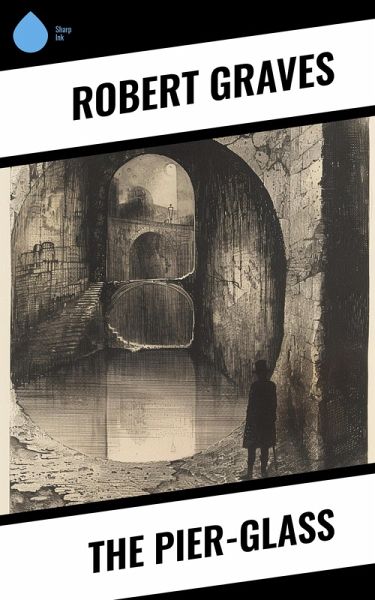
The Pier-Glass (eBook, ePUB)

PAYBACK Punkte
0 °P sammeln!
In "The Pier-Glass," Robert Graves delivers a poignant exploration of the complexities of the human psyche through the lens of a domestic drama. The narrative intricately weaves themes of memory, longing, and the ephemeral nature of life, showcased through his characteristic lyrical prose and rich symbolism. The title itself references the mirrors often found in homes, serving as both a reflection of physical appearance and an allusion to deeper introspection. Set against the backdrop of post-World War I England, Graves's work can be seen as part of the Modernist movement, marked by its depart...
In "The Pier-Glass," Robert Graves delivers a poignant exploration of the complexities of the human psyche through the lens of a domestic drama. The narrative intricately weaves themes of memory, longing, and the ephemeral nature of life, showcased through his characteristic lyrical prose and rich symbolism. The title itself references the mirrors often found in homes, serving as both a reflection of physical appearance and an allusion to deeper introspection. Set against the backdrop of post-World War I England, Graves's work can be seen as part of the Modernist movement, marked by its departure from traditional narrative structures and its exploration of existential themes. Robert Graves, a prominent figure in 20th-century literature, is well-known for his insights into human experience, shaped by his own tumultuous life and experiences as a soldier in the Great War. His keen interest in history and mythology informs his distinctive narrative style, often blending reality with poetic elements, a technique evident in "The Pier-Glass." Graves's personal struggles with identity and loss undoubtedly influenced this reflective, emotional work. This book is highly recommended for readers seeking a profound yet accessible meditation on the nature of identity and the passage of time. Graves's skillful prose invites contemplation, making this text a suitable choice for both literary scholars and casual readers alike, encouraging a reevaluation of one's own reflections on life and self.
Dieser Download kann aus rechtlichen Gründen nur mit Rechnungsadresse in A, B, BG, CY, CZ, D, DK, EW, E, FIN, F, GR, HR, H, IRL, I, LT, L, LR, M, NL, PL, P, R, S, SLO, SK ausgeliefert werden.













